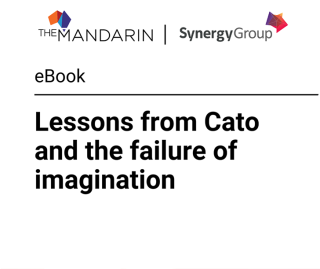
-
What We Do
-
How We Think
-
Our People
-
Our Offices
-
About Us
-
Get In Touch

In a LinkedIn post not too long ago, I waffled on about the rather unconventional idea that at the core of every business leader, and every decision-maker, lives an inner child.
This isn't just a fanciful thought. It's grounded in real science.
Remember when as kids, we made choices based on what would make us look cool, avoid embarrassment, or simply because it felt good? Now, fast-forward to the adult world - the corporate decisions, strategic moves. Surprisingly (or not), the same underlying emotions and desires are at play.
It turns out, much of our decision-making as adults is influenced by our 'inner child' - a concept with roots in psychology, particularly in theories like John Bowlby's Attachment Theory and Abraham Maslow's hierarchy of social needs.
Picture this: A senior executive making a multimillion-dollar decision. Whether in shaping future policy, programmes or the corporate world, the choice seems rooted in data, market analysis, and financial forecasts. But beneath this veneer of adult rationality, could there be an inner child seeking approval, avoiding feeling stupid, or longing to be perceived as cool? It's a narrative backed by the principles of Attachment Theory - our early bonding experiences subtly choreographing our boardroom dances.
Attachment theory, primarily developed by John Bowlby and later expanded by Mary Ainsworth, sheds light on how our early childhood experiences shape our adult relationships and behaviours.
Adults with secure attachment styles tend to make decisions that foster collaboration and trust in business settings. On the flip side, those with insecure attachments might lean towards risk-averse or overly aggressive strategies.
Think back to your playground days - the cliques, the yearning to fit in, the fear of being teased. Fast forward to today, and it's not much different from the corporate corridors. Robert Cialdini's 'Influence: The Psychology of Persuasion', isn't just a playbook for marketers; it's a mirror to our corporate selves, reflecting how deeply we're influenced by the social proof of our peers and the authority figures we encounter. The boardroom is not immune to these influences - where decisions are often made considering how they will be perceived by peers, superiors, or the market.
It's a throwback to our playground days. We're wired to seek approval and fear rejection, a trait that doesn't magically disappear as we step into shinier shoes.
And then there's ol' mate Maslow, with his hierarchy that's not just about physiological needs but also about the quest for esteem and belonging.
It's intriguing to consider how this shapes corporate culture. When a leader for a risky, innovative project, are they climbing Maslow's ladder, seeking esteem and self-actualisation? Are they chasing belonging within the higher echelons of the business world?
Maslow’s hierarchy of needs by EucalyptusTreeHugger — Own work, CC BY-SA 4.0, https://commons.wikimedia.org/w/index.php?curid=122601755
Maslow's work on social needs, particularly the needs for esteem and belonging, plays a significant role in adult decision-making. The desire for respect, status, and recognition often subconsciously guides strategic decisions.
So, here's the provocative bit: Much of strategy is built on the premise decision-makers are well-informed, rational adults. But scratch the surface, and you'll find a scared kid not wanting to get in trouble or just dying to be seen as smart and special by the bigger kids.
Consider the hesitancy to embrace innovative strategies - isn't it, at times, a fear of stepping out of the norm, like a child's fear of standing out on the playground?
Scratch deeper below the surface, and you'll find that the world is often just a facade for the fears and desires of our inner child. The resistance to innovative strategies, for instance, can mirror a child's fear of the unknown, of stepping away from the comfort of the familiar. The pursuit of power plays? Sometimes the adult version of gathering more toys to prove your own worth on the playground.
Understanding the influence of our inner child can be a game-changer. It's about acknowledging these subconscious drivers and learning to cater to them in a healthy, constructive way. That way, we can make decisions that are not only strategically sound but also emotionally intelligent.
As you get to finish reading this, don't head off into the distance and shy away from this revelation.
Instead, let's embrace it and use it to demystify the complexities of decision-making.
Because at the end of the day, those big meeting rooms aren't just filled with power suits; they're also filled with hopes, fears, and dreams that began long ago, in the hearts of kids who never really left us.
Next time you're in a strategy meeting, take a moment. Look around.
Behind the spreadsheets and the jargon, there might just be a group of inner children, playing the most sophisticated game of make-believe.
And that's not just a theory; it's a psychological revelation with the power to reshape our approach to business and leadership.



